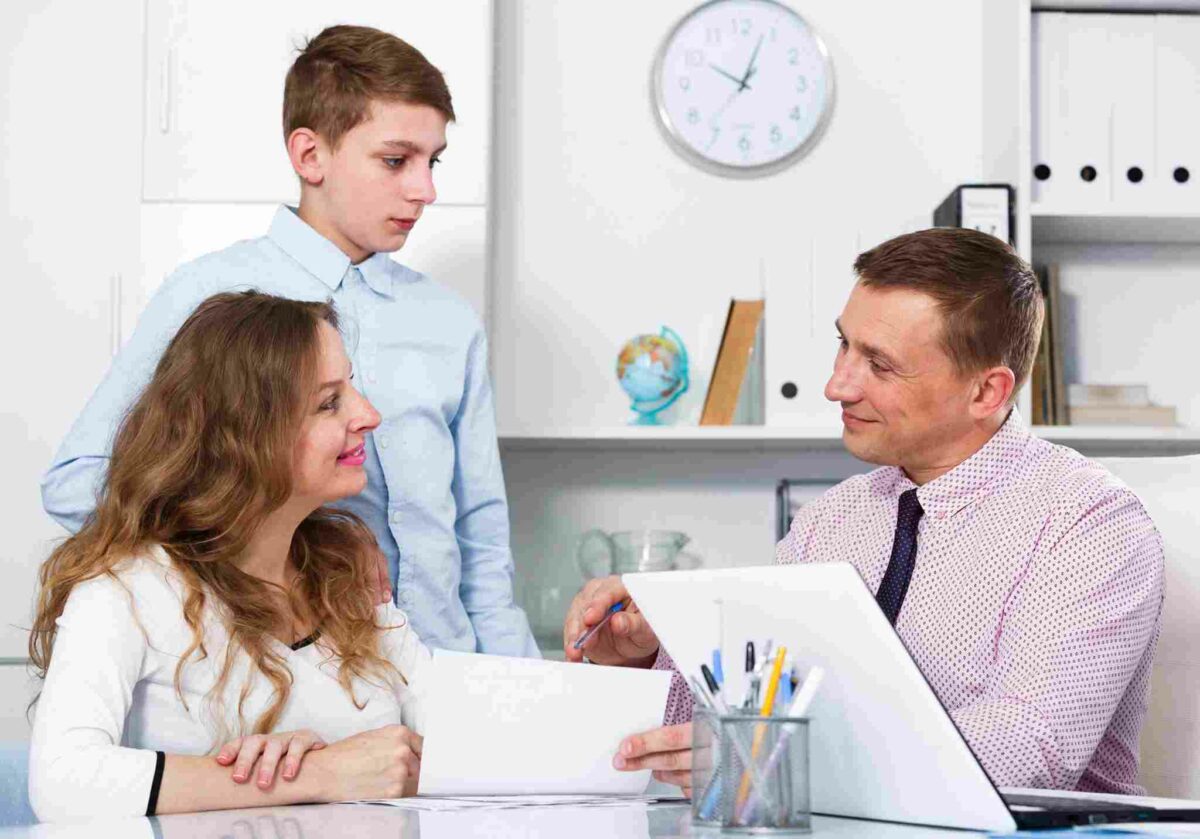When it’s about the children’s education and future, then for the parents and teachers, it’s very important to have effective communication between them. Through parent-teacher communication, both the teacher and the parent can discuss the overall improvement of the child’s development. Not only that, if there is any issue the parents and teachers face related to the children’s education, then letting them know the other side can benefit the student.
All the kids are indeed special, but they all have their respective needs and problems. If the kids face any issues, they often won’t tell their parents, especially related to their academics. And a lot of the time, if the kids are having any trouble with studies or other things, they will try to hide it in school to avoid embarrassing conversations with friends. That’s why if parents and teachers notice anything about the children, the conversation between the adults can significantly benefit the child. It will help them feel calm, and the kids will get the required attention and help.
Quick Access
Establishing a foundation for effective communication
Promote a welcoming and inclusive school
For the benefit of the kids, the school must have an understanding and open way of thinking. If they limit the parents’ teacher meetings severely and won’t let them meet the Teachers for other reasons, it will create a massive barrier between the teacher, student, and parent. Therefore, being welcoming and inclusive, the school authority should allow out-of-schedule parent-teacher meetings if required.
Open lines of communication from the beginning
If the communication between the teacher and the parent stays open from the beginning, the parents will feel comforted that they are leaving their child to reliable adults. To make the parents trust entirely the teachers, the school authority should maintain an open line of communication between the guardians and the Teachers. This way, communication can be done both ways whenever needed.
Utilize online platforms for communication
Many parents can’t attend the parent-teacher meeting because of their work. And for the single parent, it creates some extra pressure. In such situations, the teachers can use video calls to communicate and gather necessary information about the children. This way, it will be easier for the parents to discuss their worries with the teacher.
Encouraging regular and proactive communication
Organize parent-teacher conferences regularly
The teachers and school authorities should organize parent-teacher conferences for all students, especially for elementary and middle school kids. It is one of the great ways for teachers to communicate with parents; through this, the class teacher can discuss the children’s activities, development, and upcoming events. For kids in lower grades, establishing regular conferences would make it easier for the parents to be part of the kids’ lives.
Send out weekly or monthly newsletters
If the school starts the process of monthly or weekly newsletters, it will help both the parents and the kids. Through the newsletter’s contents, the parents will be aware of the activities at the school or classes. If any event is going to happen at the school, then with the help of the newsletter, it would be difficult to forget for the guardians.
Utilize technology for real-time updates
Nowadays, with the help of technology, knowing about things is much easier. For any updates or events related to school, instead of shading information on one, the school authority can send the information all at once by using social media. The same way the parents can communicate with the teacher is necessary.
Active listening and empathy
Hear and understand parents’ concerns and perspectives
It’s essential to have proper communication with parents as a teacher. Whenever the parents have concerns, the teachers should listen to them openly. The teachers should understand that every child is different and they have their respective issues. So if the parents feel like the teachers but judge the problem or them as a person, it won’t have a good impact. Therefore, the teachers should actively listen to all parents’ concerns or perspectives.
Show empathy towards parents’ experiences and challenges
In school, students can get bullied, kids have a disorder, display signs of trauma due to peer pressure, etc.; there are many other reasons that a child can be in distress. When the parents come to know about any of these situations, the first thing they prefer to do is contact the school authority or teacher. Teachers and human beings should always show empathy and listen to the issues carefully while talking with the parents.
Use non-judgmental language and tone
While talking to the parents, the teachers must be compassionate and non-judgmental. The teachers must understand that they are a caregiver and the kids are spending a major part of their day at the school. Therefore, if there is any issue or concern the parents have related to the school, teacher, or student, then the school authority must listen to it, and if it’s related to school bullying or violence, then immediately take action. But if the teacher or school authority sounds judgmental from the beginning, the parents wouldn’t trust the school with the issue.
Providing multiple modes of communication
Recognize that each parent may prefer different communication methods
It’s a great idea to provide access to multiple modes of communication to the parents. It will assure the parents that the teachers are trying to communicate with the parents in any way they prefer. Based on the time and preference of the guardians, the parents can choose their preferred modes of communication. It allows them to communicate with the teacher how they feel comfortable.
Offer multiple options for contacting teachers
Then, to utilize multiple modes of communication, the school authority must maintain a portal or other method of communication like email and phone; if the parents want, they can meet the teachers in person. This way, it’s true that it would be difficult for the school to manage all the communication methods; however, it will benefit both the school parents and the students.
Translate important documents and messages for non-English speaking parents
Many parents are uncomfortable with English but want the best future for their children. That’s why they enrolled their kids in a great school. Now, if it’s possible for the school authority they should translate the important documents and send them to the non-English speaking parents; this way, for both guardians, it would be easier to understand the document’s content.
Collaborative approach to problem-solving
Include parents in decision-making processes
If the school is thinking of taking any decision or something related to the students or school, then including the parents in the decision-making process is a good idea. Schools must understand that to know what is best for the student, they must discuss it with the parents. So if the teachers or school authority is making a decision, then by including parents, the teachers, and parents can have a proper discussion about the changes.
Discuss strategies for addressing challenges together
The parents are the best crowd to provide genuine feedback and issues about the school. For example, once a month on Saturday, if the school authority proposes a meeting among the parents, the parents and teachers can properly discuss the children. Then, the parents can provide feedback about the concerns they have and then also discuss strategies to make the situation get better.
Encourage parents to share ideas and suggestions
Sometimes, the parents have great ideas and strategies to keep the education and system at the school fun and interesting for the children. Also, if any issues are going on, like bullying, students not attending class, or something related to learning, then to solve these issues, the parents can help a lot by providing their opinions. So, the teachers should encourage the parents to share their ideas, not hide it.
Foster a culture of transparency and trust
Share student progress reports and assessments regularly
The students may not like it, but by regularly providing the student progress report and assessment to the parents, they will have transparency and trust between the teacher and the parents. This way, the parents will know the children’s activities and progress; it will also help establish proper communication with parents as a teacher.
Be open about challenges and opportunities for improvement
Being in denial is the last thing the teachers and school authorities should do. Suppose the parents are telling the teachers that they are concerned about something in school. Then, the school authority should accept the parents’ concerns and take it as an opportunity for improvement.
Communicate classroom policies and expectations clearly
When we are talking about the students, the teachers and parents should take measures for their children as well. To make the school a perfect place for the students, it’s important to build a respectful community; that’s why the parents should also understand the classroom policies that the students and parents must follow. And the teachers have to be straightforward about it so their expectations get fulfilled.
Addressing conflicts and concerns promptly
Respond to parent concerns with urgency and sensitivity
The school authority and the Teachers must understand that when the parent is discussing their concern with the teacher, the parents want the school to take action on that situation urgently. For sensitive issues like gender discrimination, bullying, violence, etc, The school must take these situations sensitively as the lives of children are tied to it. Still, at the same time, the action should be taken as soon as possible.
Offer mediation or third-party facilitation, if necessary
After resolving the situation, primarily, the work of the school authority is not finished. Now, when the major work is done, the teachers must assist those emotionally traumatized students through medication and professional counseling. For both the teacher and the parents, keeping the students safe and secure is the priority.
Regularly evaluate and improve communication practices
Besides the improved and regular communication between the parents and teachers, it’s also necessary for the school to establish a safe communicative space for the students. If the students feel uncomfortable and afraid to communicate with the teachers, it would affect the overall communication system in the school. So, the teachers should practice improved communication with the students as well.
Conclusion
The communication between the parents and teachers plays a considerable role in the kids’ lifestyle. As the children don’t tell everything about their academic activity to the parents, the parents exist in the blind spot.
Then, by having a communication system between the parents and the teachers, they can discuss the activities, events, and issues related to the school and the student’s lives. It allows the parents to be a part of their children’s lives and the school community.
Then, with the help of an effective community, the parents won’t hold back their opinions or ideas to make things better for the students and the school. By encouraging the ongoing efforts of the parents, the school authority can have some enhanced communication strategies.

